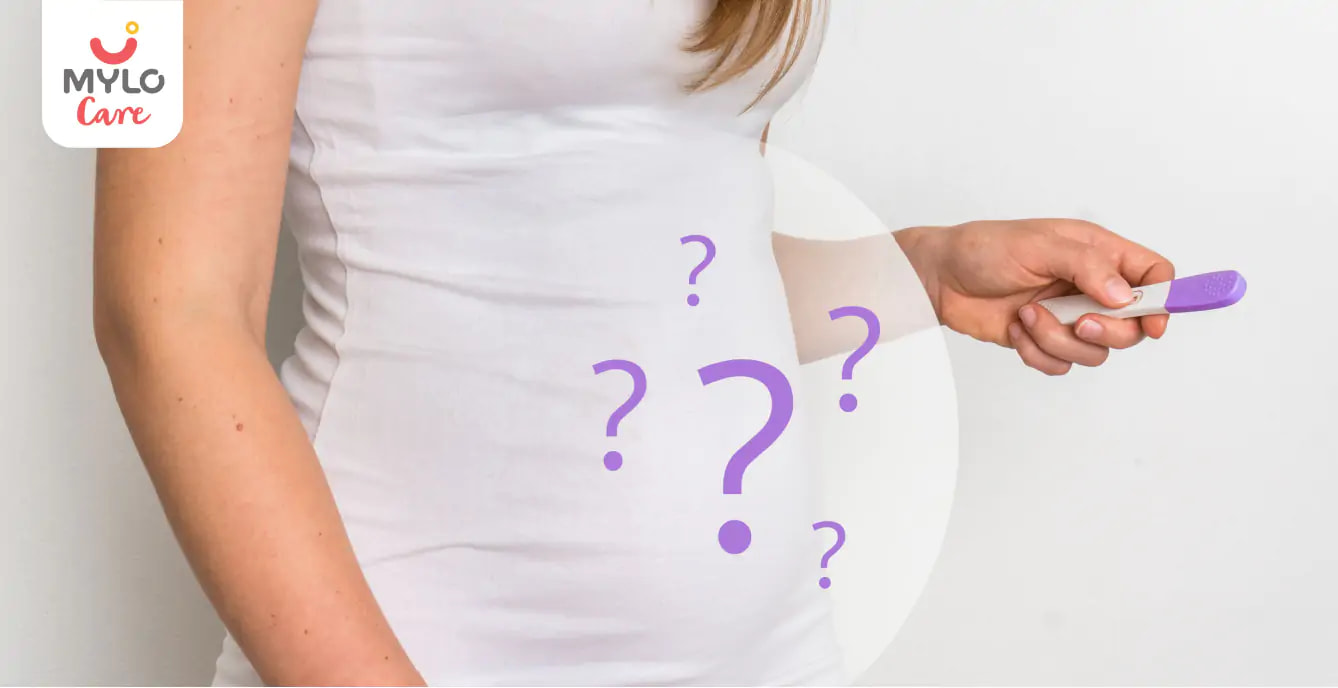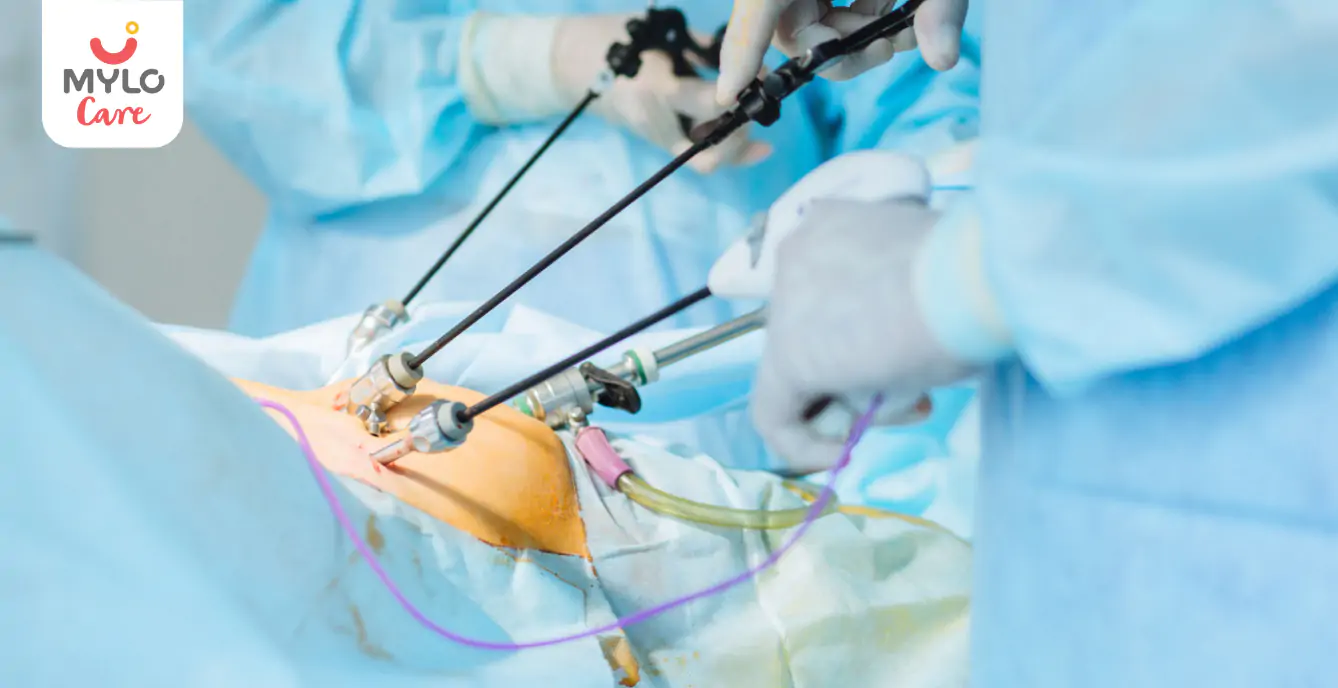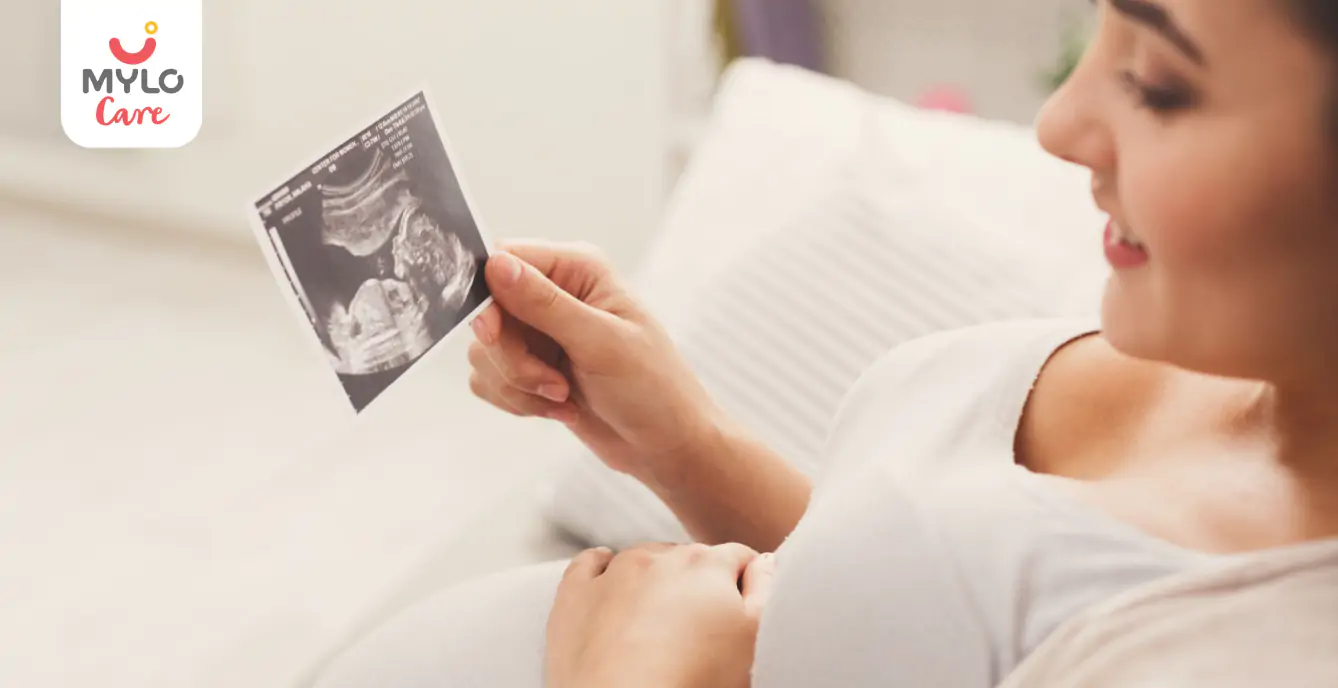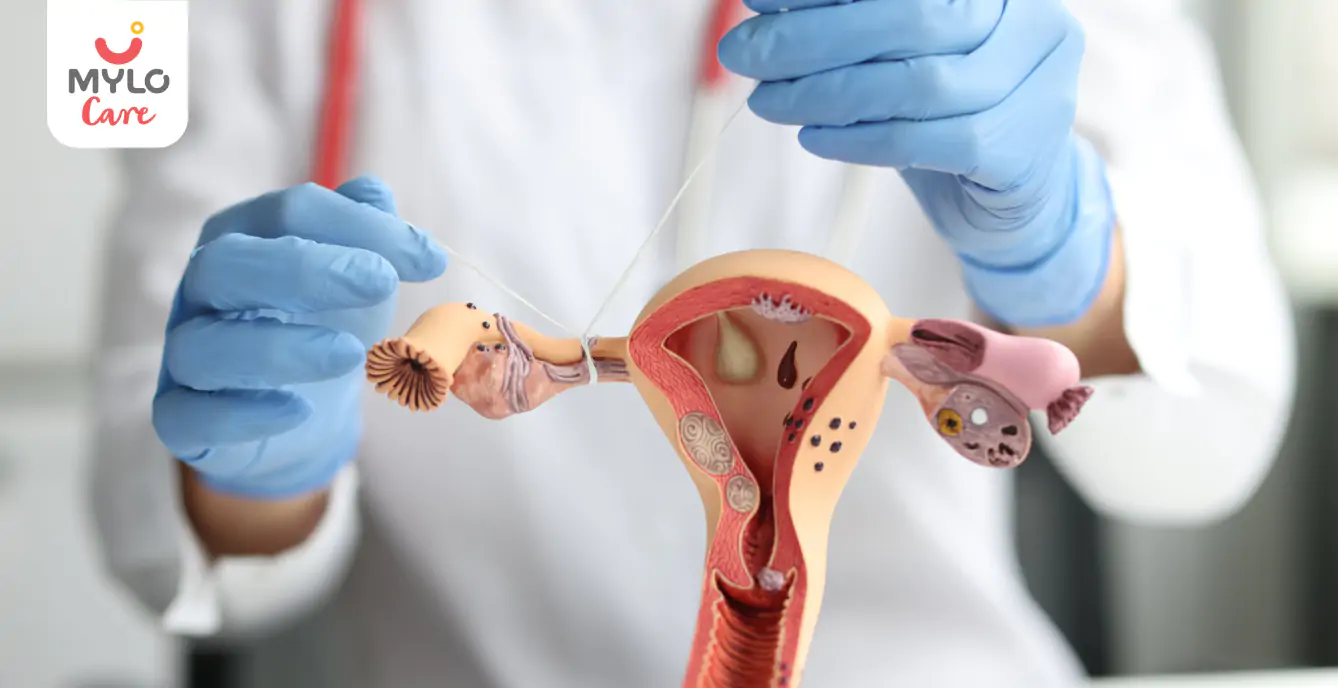Home

PCOS & PCOD

How to Get Pregnant with PCOS: The Ultimate Guide for Women
In this Article

PCOS & PCOD
How to Get Pregnant with PCOS: The Ultimate Guide for Women
Updated on 15 February 2024
Polycystic Ovary Syndrome (PCOS) is a common hormonal disorder that affects many women of reproductive age. One of the challenges women with PCOS face is getting pregnant. However, with the right knowledge and approach, it is possible for women with PCOS to conceive and have a healthy pregnancy. In this ultimate guide, we will explore how to get pregnant with PCOS using various strategies and techniques that can increase the chances of natural conception.
Can a PCOS Patient Get Pregnant?
Can women with PCOS get pregnant? The answer is yes, although it may require some extra effort. PCOS affects the ovaries and disrupts the regular ovulation process, making it more difficult to conceive. However, with the right lifestyle changes, medications, and fertility treatments, women with PCOS can improve their chances of getting pregnant.
What is the best age to get pregnant with PCOS?
The best age for women with PCOS to get pregnant varies from person to person. Generally, it is advisable to try to conceive as early as possible once you have made the decision to start a family. PCOS tends to worsen with age, making it harder to conceive as you get older. However, it is important to note that every woman's fertility journey is unique, and consulting with a healthcare professional is recommended to determine the best age for you to try to get pregnant.
You may also like: PCOS and Pregnancy: How to Manage PCOS on the Path to Parenthood
How to Get Pregnant with PCOS?
Getting pregnant with PCOS may require some additional steps compared to women without the condition. Here are some strategies that can increase your chances of conceiving:
Sex positions for PCOS to get pregnant
Polycystic Ovary Syndrome can impact fertility, and there are various factors that might affect conception. Here are a few general tips related to sexual positions that might be helpful for you to discover the best sex position to conceive with PCOS:
1. Missionary Position
This position allows for deeper penetration and may help sperm reach the cervix more easily.
2. Elevated Hips Position
Elevating your hips using a pillow after intercourse can potentially aid in sperm reaching the cervix and entering the uterus.
3. Doggy Style Position
Some couples believe that this position might facilitate sperm movement towards the cervix.
4. Side-by-Side Position
This position can provide good intimacy and allow for deep penetration as well.
5. Regular Intercourse
More important than finding the best sex position to conceive with PCOS, is having regular sexual intercourse during your fertile window. Tracking your ovulation through methods like basal body temperature charting or ovulation predictor kits can help determine the best time for intercourse.
Exercises for PCOS to get pregnant
Let us take a look at some of the exercises that can help you manage PCOS and increase your chances of conception:
1. Yoga
Yoga has been shown to be effective in improving fertility and managing PCOS symptoms. Specific yoga poses and sequences can help regulate reproductive hormones, reduce stress, improve blood circulation to the reproductive organs, and enhance overall fertility. Some recommended yoga poses for PCOS include the butterfly pose, reclining bound angle pose, and the seated forward bend.
2. Squats
Squats are a great exercise for PCOS and can help improve fertility. They work the large muscle groups in the lower body, including the glutes, quadriceps, and hamstrings. Squats help improve blood flow to the pelvic area, stimulate hormone production, and strengthen the core muscles.
3. Lunges
Lunges are another effective exercise for PCOS and fertility. They target the lower body muscles and help improve strength, balance, and flexibility. Lunges also increase blood circulation to the pelvic area, which can enhance reproductive health.
4. Cardiovascular workouts
Cardiovascular exercises, such as brisk walking, swimming, or cycling, are essential for managing PCOS and improving fertility. These exercises help regulate insulin levels, burn excess fat, improve cardiovascular fitness, and reduce the risk of various health issues associated with PCOS.
5. High-intensity interval training (HIIT)
HIIT workouts involve short bursts of intense exercise followed by periods of rest. This type of exercise has been shown to be effective in reducing insulin resistance, improving mood, aiding in weight loss, and increasing cardiovascular fitness. HIIT exercises can include activities like sprinting, jumping jacks, or burpees.
You may also like: PCOS Self Care: How to Nurture Your Body and Mind
Diet for getting pregnant with PCOS naturally
To increase your chances of getting pregnant naturally with PCOS, it is important to follow a balanced diet that supports hormonal balance and fertility. Here are some key dietary recommendations for how to get pregnant with PCOS quickly naturally:
1. Choose whole foods
Opt for whole, unprocessed foods over processed ones. Focus on consuming a variety of fruits, vegetables, whole grains, and lean proteins.
2. Include healthy fats
Incorporate sources of healthy fats like avocados, nuts, seeds, and olive oil into your diet. These fats help regulate hormone production and support reproductive health.
3. Opt for the right carbohydrates
Choose complex carbohydrates like whole grains, legumes, and vegetables over refined carbs. These can help stabilize blood sugar levels and improve insulin sensitivity, which is important for PCOS management.
4. Avoid processed foods
Stay away from processed foods such as bagels, white rice, and crackers. These foods often contain unhealthy trans fats, added sugars, and artificial ingredients that can negatively impact fertility.
5. Maintain a healthy weight
If you are overweight or obese, losing just 5% to 10% of your body weight can significantly improve ovulation and fertility. Focus on a balanced diet and engage in regular physical activity to achieve a healthy weight.
You may also like: PCOD Diet: How the Right Diet Can Transform Your Life
Medications for getting pregnant with PCOS
Besides knowing the best age to get pregnant with PCOS and the optimal sex positions for PCOS to get pregnant, it’s important to know some medications to help you get pregnant with PCOS. Here are some commonly prescribed medications for women wanting to know how to get pregnant with PCOS quickly:
1. Clomiphene (Clomid)
Clomiphene is often the first-line treatment for women with PCOS who are trying to get pregnant. It helps stimulate ovulation by blocking the effects of estrogen in the body.
2. Metformin (Glucophage)
Metformin is primarily used to manage insulin resistance in women with PCOS. It can also help regulate menstrual cycles and promote ovulation. Metformin is often used in combination with other fertility medications.
3. Letrozole (Femara)
Letrozole is another medication that can be used to induce ovulation in women with PCOS. It works by reducing the production of estrogen, which can help stimulate the release of eggs from the ovaries.
4. Gonadotropins
In some cases, injectable hormones called gonadotropins may be used to stimulate ovulation. These medications contain follicle-stimulating hormone (FSH) and luteinizing hormone (LH), which help to trigger the release of eggs.
It is important to note that these medications should be prescribed and monitored by a healthcare professional. They can help improve fertility in women with PCOS, but they may have side effects and should be used under medical supervision.
Yoo may also like: Birth Control Pills for PCOS: The Ultimate Guide to Pros, Cons & Alternatives
Fertility treatments for getting pregnant with PCOS
If you are wondering, can I get pregnant with PCOS, here are the three fertility treatments for getting pregnant with PCOS
1. Medication
Medications like letrozole and clomiphene are commonly used to stimulate ovulation in women with PCOS. Letrozole has been found to be more effective than clomiphene in terms of ovulation and live birth rates. These medications work by regulating hormone levels and promoting the release of eggs from the ovaries, increasing the chances of getting pregnant.
2. Non-hormonal treatment
Inositols, a type of sugar alcohol that naturally occurs in foods and can be found in two forms: Myo-inositol and D-chiro-inositol, have proven beneficial for women with PCOS. Myo-inositol has especially been found to improve insulin sensitivity, restoring menstrual regularity, reducing androgen levels and improving fertility.
Women searching for non-hormonal treatment options for PCOS can also consider Mylo’s chewable Myo-inositol tablets, which are fortified with Quatre Folic and Vitamin D and can help promote hormonal balance and overcome common as well as specific PCOS/PCOD challenges.
3. In vitro fertilization (IVF)
In cases where other treatments have not been successful, in vitro fertilization (IVF) may be recommended. IVF involves fertilizing eggs outside the body and then transferring the embryos into the uterus. This method provides the best chance of getting pregnant for women with PCOS. However, it is important to note that IVF can be expensive and may not be covered by insurance. It is advisable to consult a reproductive endocrinologist for personalized fertility treatment options.
Final Thoughts
Understanding how to get pregnant with PCOS may require some extra effort, but it is definitely possible with the right approach. By implementing lifestyle changes, following a healthy diet, engaging in regular exercise, and considering medications or fertility treatments when necessary, not only can women with PCOS get pregnant but also have a successful pregnancy. Remember to consult with a healthcare professional for personalized advice and guidance throughout your fertility journey.
References
1. Kamalanathan S, Sahoo JP, Sathyapalan T. (2013). Pregnancy in polycystic ovary syndrome. Indian J Endocrinol Metab. NCBI
2. McDonnell R, Hart RJ. (2017). Pregnancy-related outcomes for women with polycystic ovary syndrome. Womens Health (Lond). NCBI
Tags
How to Get Pregnant with PCOS in Hindi, How to Get Pregnant with PCOS in Tamil, How to Get Pregnant with PCOS in Bengali, How to Get Pregnant with PCOS in Telugu



Written by
Ravish Goyal
Official account of Mylo Editor
Read MoreGet baby's diet chart, and growth tips

Related Articles
Related Topics
RECENTLY PUBLISHED ARTICLES
our most recent articles

Medical Procedures
Laparoscopic Ovarian Drilling: A Safe and Effective Solution for PCOS-Related Infertility

Headaches
Headache During Pregnancy: The Ultimate Guide to Causes and Cures

Scans & Tests
Fetal Doppler Scan During Pregnancy: In which week should you get it done?

Sleep
How Long Should Naps Be While Pregnant?

Fertility Problems
Blocked Fallopian Tubes: How They Affect Your Chances of Conceiving

How Do You Notify Your Employer That You Are Pregnant?
- The Ultimate Guide to Consuming Tapioca During Pregnancy
- Braxton Hicks Contractions or Real Labor: How to Tell Them Apart?
- Top 10 Tips For The Third Trimester Of Your Pregnancy
- Maternity Leave 101: Rules, Benefits & Timings for Expectant Working Women
- The A-Z Guide to Identifying Summer Vegetables for Kids
- Christian Baby Girl Names That Stand the Test of Time
- The A-Z Guide on Purple Colour Fruits and Vegetables for Kids
- The A-Z Guide on Red Colour Fruits & Red Colour Vegetables for Kids
- The A-Z Guide on Yellow Fruits & Yellow Colour Vegetables for Kids
- Cervical Cancer: Causes, Symptoms & Prevention
- The A-Z Guide to Identifying Stem Vegetables for Kids
- Can Fetal Heartbeat Disappear and Reappear?
- The Ultimate Guide to Teaching Children 20 to 30 Tables
- GK Questions for Kids from Nursery to Class 6


AWARDS AND RECOGNITION

Mylo wins Forbes D2C Disruptor award

Mylo wins The Economic Times Promising Brands 2022
AS SEEN IN

- Mylo Care: Effective and science-backed personal care and wellness solutions for a joyful you.
- Mylo Baby: Science-backed, gentle and effective personal care & hygiene range for your little one.
- Mylo Community: Trusted and empathetic community of 10mn+ parents and experts.
Product Categories
baby carrier | baby soap | baby wipes | stretch marks cream | baby cream | baby shampoo | baby massage oil | baby hair oil | stretch marks oil | baby body wash | baby powder | baby lotion | diaper rash cream | newborn diapers | teether | baby kajal | baby diapers | cloth diapers |




